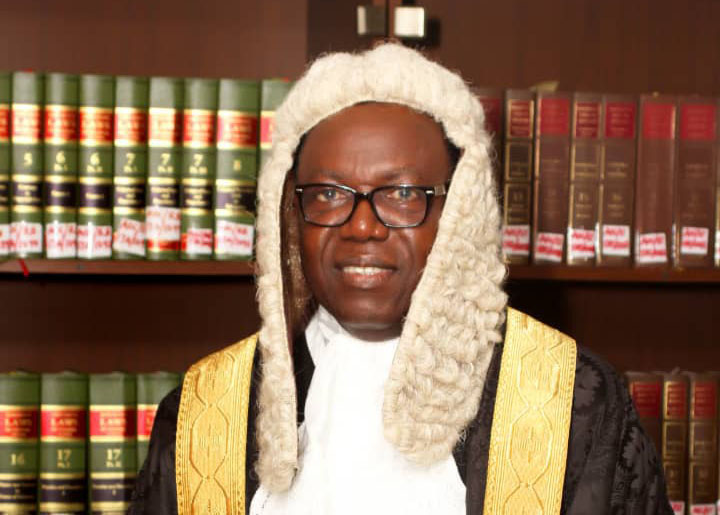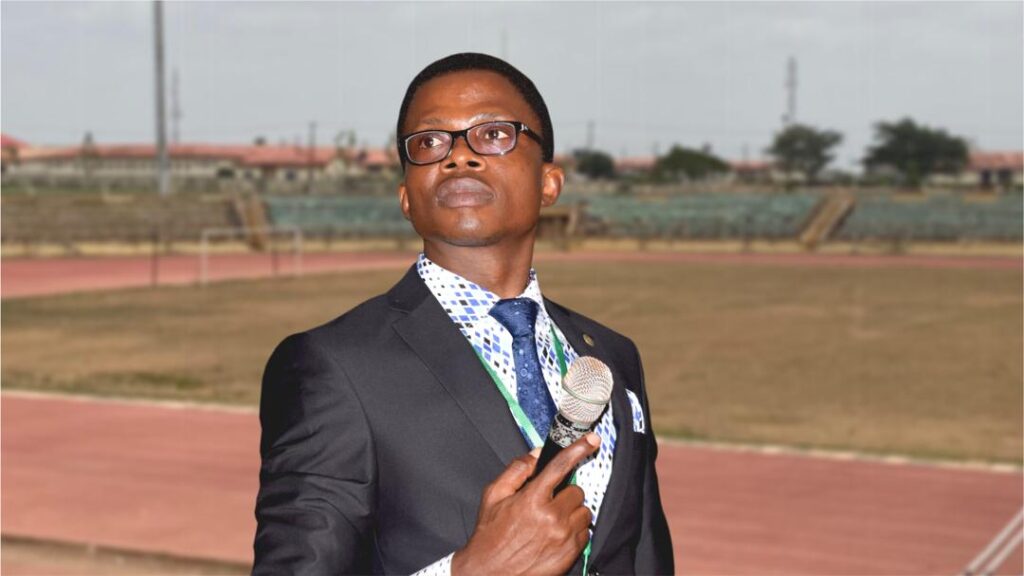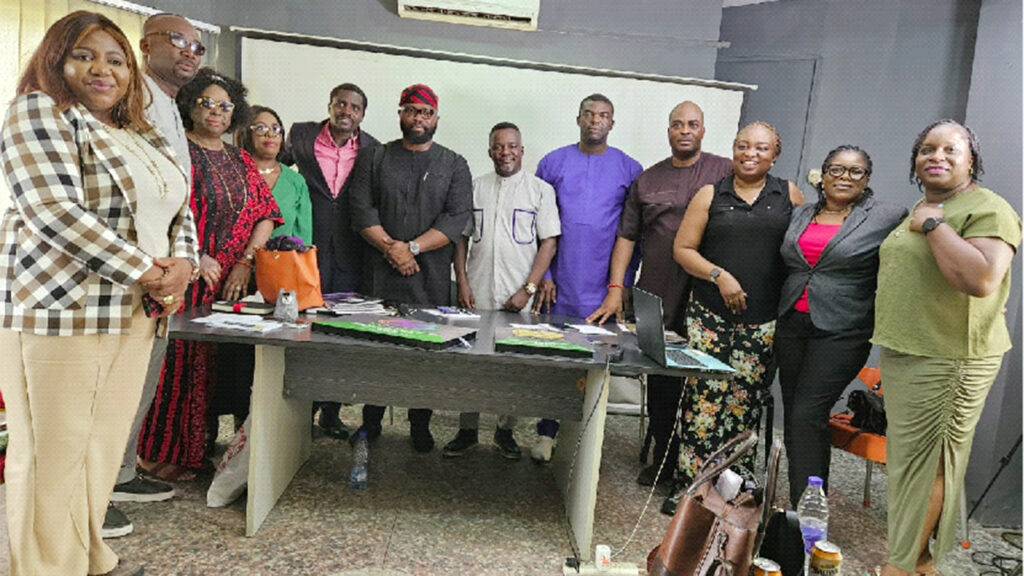
Dr. Akin Onigbinde (SAN) is a former speaker of the Oyo State House of Assembly. In this interview with ROTIMI AGBOLUAJE, he declared that section 214 of the 1999 Constitution should be amended to accommodate state police and multi-level policing. He also advocated the establishment of regional Supreme Courts to reduce the workload in the dockets of the current apex court, among other issues.
The debate on constitutional amendment has gained more traction lately. Which areas do you think the country must focus on?
The first area I think we should pay attention to is the idea of the source of the Constitution. It continues to be a source of dissatisfaction to people that this constitution didn’t arise from the ethnic nationalities that make up Nigerians. The opening chapter of the Constitution says, ‘We, the people of Nigeria’.
And people are saying there was nowhere they agreed to put together that Constitution. So, the Constitution is a documentary lie. We have to address the issue of the source of the Constitution, whether by the combination of our visitations on the previous reports such as the 2014 Confab or by the act of the National Assembly. Then, an aggregate of the people of Nigeria can say they now have a Constitution that is proclaimed by them. The question of the illegitimacy and the falsehood of that document as a military contraption would have been laid to rest, and people would be ready to accept it as a proper document that regulates our lives.
If you read the history of the Constitution of America and you go through what you call the Federalist Papers, you see that every area of their lives was thoroughly argued out in the Federalist Papers. People went through it, disagreed over it, and finally, a document evolved. We need to interrogate so many areas of our lives that are giving people discomfort and then come up with a document that everybody can say is acceptable. It doesn’t mean the American Constitution has not been amended over time, but it doesn’t affect the country. Every constitution is a product of human intellect. It is subject to errors. It is subject to becoming archaic and not being relevant to current realities. You can always change and evolve it around the realities and so on. That can be understood and accepted by everybody. So, once we deal with the issue of the foundation, we can then start to interrogate the various sections and see how they are helpful to us.
Let’s take, for instance, the issue of security, which is at the top hierarchy of our national concerns now. We call ourselves the Federal Republic of Nigeria, but in reality, we are not operating like a federating unit. All the powers are concentrated at the centre. Military power is concentrated at the centre. Having Immigration and Customs at the centre is understandable, but what about the police? Do you need to have a single police system to organise social order from Zamfara State to Uyo, from Uyo to Ogbomosho, and from Ogbomoso to Lalupon? Policing means being able to have information and intelligence and bring order to an immediate community. You can’t possibly efficiently do that on a national basis. We are interested in using the American example, but you have federal police in the US, Federal Bureau of Investigation (FBI). The US has state police, community or county police. Some universities have campus police. The crime and security reality of every environment varies and the budget that everybody is ready to put into their policing is also different. If Lagos is going to have its police force, it has to be related to the population, the rate of crime, the rate of mobility, the number of vehicles in the environment and so on. So, you don’t expect Zamfara State to have the same budget for policing like Lagos because the realities are quite different. Like any federating unit, you decide how much you are ready to spend on education, health and security. So, we don’t keep deceiving ourselves that we are a Federal Republic when, in fact, we’re a centrist, unitary system of government. That is what is creating all of these inefficiencies.
It is section 214 of the Constitution that provides for a central policing system. Should it be expunged?
It should be amended. I’m not saying it should be deleted. But let the eagle fly, let the kite also fly. If one says no to the other, let its wings break, to use the language of Chinua Achebe. There is nothing that stops us from having a federal police system together with state police just like America has the FBI. There are federal offences that the FBI investigates. It is not every offence that will warrant the Inspector General of Police sending his men. Let there be federal offences, state offences, and local government offences that will be managed by the different strata of policing arrangement. We need not delete it, but we don’t need something as large as the present federal police system. It is inefficient and expensive, and it creates problems of jurisdiction.
Governor Seyi Makinde said he didn’t need to submit any memorandum on state policing to the National Economic Council. What do you have to say about that?
Well, Makinde is not the only governor who has not submitted. 20 governors have not submitted. Makinde may be an engineer, but he’s a very reflective person. He demonstrates a deep understanding of the operation of the state. That he has not submitted does not mean he won’t or that he will. But he takes his time to be able to reflect on what he thinks is the best for the state. At present, even without having a state police, the little initiative of the Amotekun corps that himself, the late Governor Rotimi Akeredolu, and others in the Southwest put together has been very effective in minimising the rate of crimes in Oyo State. It is not what it used to be. Ibadan and Oke-Ogun used to be centres of violence and fear. This is not the case again today. If you go to every nook and cranny of the state, you will see Amotekun Corps vehicles.
When people know that they are under surveillance, it is a disincentive to crime. So, they may not be calling Amotekun state police yet, but there’s effective policing of the State. Remember that Amotekun was resisted by the former Attorney General of the Federation, Abubakar Malami, but people took courageous steps, and all of us are beneficiaries of the outcome. So, it’s not so much of the hood but the monk. What is important is what the people in charge are doing to make sure that they resolve the problem of insecurity on the ground.
Are you comfortable with the pace of this constitutional amendment process?
Well, every successful institution is subject to evolution. We are often in a hurry to get certain things done in this part of the world. We act first, many times, and think later. As I said, when the American Constitution was to be made, there were a lot of arguments before they came up with it. We need to think through the implications of the amendment that is proposed to Section 214. This is because there are consequential realities that will follow. Will the police still have the same budget if there are now state police? Will you be dividing the budget of the police between the federal police and the new state police? There are financial implications that will arise. There are human resources implications. What about those people who are already in service of the federal police, but are from Oyo State? Would they have a choice to stay with the federal police, or would they be brought to their state of origin? How do you manage the necessary constitutional and legal fallout that those types of decisions are likely to create? What about the issue of conflicts? How do you manage jurisdiction between federal police in Eleyele and state police, maybe, with its headquarters at Akinyele?
The federal police that have been there in Eleyele may feel that those people in state police are just coming, and the federal police would be in charge of Oyo State now. How do you intend to regulate the relationship? Now, you start to build headquarters, and you have to buy arms. How do you regulate arms? Already, we have difficulty controlling small and medium arms. We haven’t been able to control who gets what. We don’t want to solve one problem and create more serious problems. These are issues you need to think through. These are issues that any governor must reflect on and think through. The governor is the person on the ground. Whatever trouble in any state, it is the governor who will have to provide the answer. Let us see that we have to address and interrogate the automatic fallout of those types of amendments before we would say we are opting for state police.
The number of Justices at the Supreme Court is now complete. Despite that, the workload there is still much. Would you support the regional Supreme Court system?
Again, let us evolve. The Constitution, at present, stipulates the number of Supreme Court Justices we must have. We never did. So, it created a whole lot of problems in terms of the workload that Justices of the Supreme Court had to face. It’s amazing how they can cope, particularly during the election season, when virtually every other area of adjudication came to a halt because election cases are time-bound. But now, we have solved that problem. The current Chief Justice of Nigeria has been courageous enough to propose and source competent people who can fill the empty chairs in the Supreme Court. He made that promise at the beginning of his tenure and he has been able to fulfill that. It’s not an easy feat to achieve, bearing in mind the fact that the process of appointing Supreme Court Justices is not limited only to the CJN. He has to ensure that the National Judicial Council (NJC) is in sync with him.
Although he’s the chairman of the NJC, he’s not NJC. He must make sure that the NJC is in sync with him. Otherwise, he would have found it difficult to do what he did. Then, it’s the president who approves. If he was busy fighting the president, his request may still be in the office of the president until now. We have, at least, conquered that particular area.
Some of us who are legal practitioners are happy with the appointments, but we thought that the opportunity should have been expanded beyond judicial officers to academics. If the Supreme Court finds it good to appoint academics to become Senior Advocates of Nigeria, if we have a history of academics like Teslim Elias, Karibi-White, and others becoming Justices of the Supreme Court and they had stunning performances, that window shouldn’t be shut out to those who are interested. But again, we’re evolving. Maybe, during the next set of appointments, we’ll have a situation where people with sufficient legal understanding will be appointed.
On the issue of jurisdiction, the Supreme Court is presently inundated with appeals that really should not go there. We have conflicts relating to chieftaincy, marriage and land getting to the Supreme Court. When you constitute a panel of the Supreme Court, justices don’t choose which cases they want to listen to. It’s administrative.
So, if a justice is from Ogbomosho and then you ask him or her to adjudicate on a chieftaincy case from Abia State, can his understanding of the law and practice of Eastern culture give him or her sufficient verve? Justice has to keep researching and finding out. It would have been better if those issues were left at the level of a possible regional Supreme Court, where you are likely to have people who are vast in the local law, jurisdiction and customs of that place. So, I think the Supreme Court of Nigeria should be a policy court that adjudicates matters that bind all of us together and therefore reduce the dockets that continue to land on the table of their lordships.
Do you think that the office of the CJN is too powerful as claimed by retired Justice Muhammad Dattijo?
If you’re going to hold the CJN responsible for anything happening in the judiciary, then he must have control. You can’t give me responsibility without power. If anything goes wrong in any of those courts in the judicial system, we start to harass the CJN. We’ll say he is the person responsible for whatever happened. If he’s responsible, then he should be in a position to oversee the operation of those courts.
And then it was unfortunate that Justice Dattijo made those comments at the time he was exiting. We never heard him make those observations while he was in service. Though it probably would not have been easy for him to make certain comments, I do not think that that was an occasion most auspicious for him to have made some of those observations. Again, if in our collective experience, we now find out that the way the office is operated gives more undue advantage to an individual, we should find a way of checking and balancing powers. You don’t cut your nose to spite your face. If you have a CJN that is too powerful, it doesn’t mean all CJNs will be like that. But there should be a system that will make it impossible for a powerful or ambitious CJN to overrun everybody.
However, is it only a CJN that can be all-powerful? Can’t the Chief Judge of a state be similarly too powerful? He controls the magistrates and the customary court system. If you have somebody who is also very tough, if you don’t regulate his conduct and the operation of his office, he too can become a problem to the judicial system in a state. So, you can have these realities springing up in any area of power. It is our responsibility to always be vigilant and bear in mind the eternal saying that “power tends to corrupt and absolute power corrupts absolutely.” Even in churches and mosques, there are some pastors and general overseers who virtually have absolute control. So, there should be a way of checking anybody who is wielding power, whether executive, religious, family or judicial.
Which one do you think is better between the parliamentary and presidential systems?
Well, every system has its strengths as well as weaknesses. Whether you’re talking about the parliamentary system of government and the democratic process, it has worked in some environments. So, it’s not as if it can’t work because it does work. The colonial masters from where we got independence as a country operate a parliamentary system and it has been working for them. It’s not a perfect system. There is no perfect human system, but it has carried that society across time, development and challenges. Therefore, it can be said to be viable. Nigeria itself started from that arrangement and the period during which it worked was still recorded as the time when the country made a lot of progress. That was when we were operating the regional system.
So, I don’t think that the problem is with the hood. Very many times, whatever problem that there is, it’s with the monk. So, the hood doesn’t make the monk. It’s not a question of whether it is the hood that is not well-sewn. It’s the monk. Who are the operators of these systems? The presidential system also works in some other environments, not because of the form, but because of the content, the people, the characters, the philosophy, and the convictions of those people who operate in the system. The American type of presidential system, which we seek to follow, emphasises the development and strength of institutions such that no matter who you are, the system has a regulated means of ensuring that you perform your role, and you are held accountable. One can see the trouble that Donald Trump of America is going through now. This is indicative of a system that is working. So, we want a system that is law-regulated and institutionally based.













